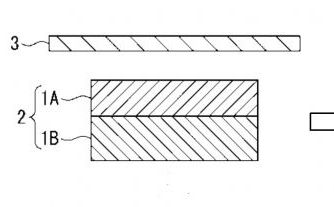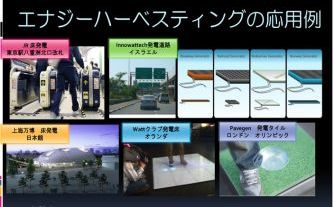show advanced search
-
1-20 / 48
- display number
-
order by date
-
order by researcher's name
-
order by affiliation
2764
Environment
posted:2024/07/05
分離方法及びリチウムイオン二次電池用電極活物質のリサイクル方法
TOKORO, Chiharu Professor (Faculty of Science and Engineering School of Creative Science and Engineering)
2663
Environment
posted:2023/07/14
情報処理装置、探査装置およびプログラム
UEDA, Takumi Professor (Faculty of Science and Engineering School of Creative Science and Engineering)
細線を用いた電気パルス解体方法(手作業解体からの解放に向けて)
TOKORO, Chiharu Professor (Faculty of Science and Engineering School of Creative Science and Engineering)
少なくとも2個の部材が接合されてなる対象物の表面の一部分に導電性材料を接触させ、大気中で前記導電性材料に高電圧パルスを印加して衝撃波を発生させて、前記対象物の接合部位に衝撃波を作用させることで前記対象物の部材同士を剥離させる、対象物の解体方法。
排気浄化システムおよび排気浄化方法
SEKINE, Yasushi Professor (Faculty of Science and Engineering School of Advanced Science and Engineering)
2416
Environment
posted:2021/06/23
空気中の二酸化炭素を除去する方法
MYERS, Corey Adam Junior Researcher (Faculty of Science and Engineering Waseda Research Institute for Science and Engineering) (retired)
二酸化炭素の固定化方法
NAKAGAKI, Takao Professor (Faculty of Science and Engineering School of Creative Science and Engineering)
2018-1026-07
Environment
Nanotechnology / Materials
posted:2018/11/15
Low-cost energy harvester using thin piezoelectric polymer film
SEKIGUCHI, Tetsushi Senior Researcher (Research Council (Research Organization) Institute for Nanoscience & Nanotechnology) (retired)
collaborative researchers:笹川 健太 (retired), SASAKI, Toshio Junior Researcher (retired), 中嶋 宇史 (retired), SHOJI, Shuichi Professor (retired)
● Making thin membrane by spin coating of polymer. ● Making electrode by ink jet printer.● Poling process is not needed.
高感度コンプトンカメラ
KATAOKA, Jun Professor (Faculty of Science and Engineering School of Advanced Science and Engineering Department of Applied Physics)
高感度で容易に携帯可能なガンマ線撮影用のコンプトンカメラです。
アルミニウム合金選別システム
OWADA, Shuji Professor (Faculty of Science and Engineering School of Creative Science and Engineering) (retired)
合金系別にアルミニウム合金を判別し回収出来るシステムです。アルミニウムあるいはアルミニウム合金は、省資源化と低コスト化の観点からリサイクルされています。迅速かつ大量にアルミニウムおよびアルミニウム合金を他の金属から選別して回収する中で、アルミニウム合金は添加される金属ごとに合...
2011-0909-03
Environment
posted:2014/05/21
Techniques for separation and recovery of CO2 using lithium silicate
NAKAGAKI, Takao Professor (Faculty of Science and Engineering School of Creative Science and Engineering)
“Lithium silicate” (Li4SiO4), developed by Toshiba, is a solid absorption material that can be used repeatedly to absorb CO2 at 600º and release CO2 at over 800º. It has excellent properties, such as higher absorption speed in the presence of water vapor, the ability to separa...
2011-0909-04
Environment
posted:2014/05/21
Increase in thermal energy quality through chemical regeneration
NAKAGAKI, Takao Professor (Faculty of Science and Engineering School of Creative Science and Engineering)
While thermal energy can be obtained easily and in large volume, it is irreversible, making it difficult to maintain a high-exergy-rate state. To address this, we can use chemical regeneration. Exergy-lowering processes like vapor reformation and partial oxidation chemically d...
2011-0909-01
Environment
Nanotechnology / Materials
posted:2014/05/21
Organic light-emitting transistors
TAKENOBU, Taishi Guest Professor (Faculty of Science and Engineering School of Advanced Science and Engineering) (retired)
Construction of transistors rather than diodes, however, allowed large currents to flow and light-emitting phenomena to be obtained. By adjusting the oscillatory conditions, organic lasers become an attainable goal.
2011-0909-02
Environment
Nanotechnology / Materials
posted:2014/05/21
Manufacture of flexible transistors using inkjet methods
TAKENOBU, Taishi Guest Professor (Faculty of Science and Engineering School of Advanced Science and Engineering) (retired)
It is possible to fabricate organic transistors onto plastic substrates by the inkjet method, by using a solution in which single walled carbon nano-tubes are dissolved in an organic solvent as the ink.
2011-0914-01
Environment
posted:2014/05/21
Ultra lightweight vehicle (ULV)
ONODA, Hiroshi Professor (Faculty of Science and Engineering)
We have developed an ultra lightweight vehicle (ULV) based on the “more than a bicycle less than a vehicle” concept. By obtaining a registration number in the mini-vehicle category, this vehicle can be legally driven on public streets. At present, development of EVs is being f...
2011-0914-02
Environment
posted:2014/05/21
Co-benefit based support system and program for environmentally conscious behavior
ONODA, Hiroshi Professor (Faculty of Science and Engineering)
Differing from the traditional types of HEMS and BEMS, based on automated control of lighting and air conditioning, these are a support system and program for environmentally conscious behavior focused on the lifestyles and work-styles of the individual (resident, worker, etc....
2011-0914-03
Environment
posted:2014/05/21
Production and network for use of bio-oil from unused woody biomass
ONODA, Hiroshi Professor (Faculty of Science and Engineering)
We possess knowledge of multi-energy supply which combines production techniques for bio-oil from woody biomass based on rapid pyrolysis, with gasification and bio-oilification (having reached the stage of practical use thanks to joint research with plant manufacturers). Other...
2011-0920-01
Environment
posted:2014/05/21
Accelerating environmental cleanup processes
TOKORO, Chiharu Professor (Faculty of Science and Engineering School of Creative Science and Engineering)
Through detailed solid analysis techniques, including XAFS, and geochemical simulations involving surface complex models and reaction kinetics, it is possible to construct optimal processing processes and set conditions, according to the respective contamination conditions. In...













